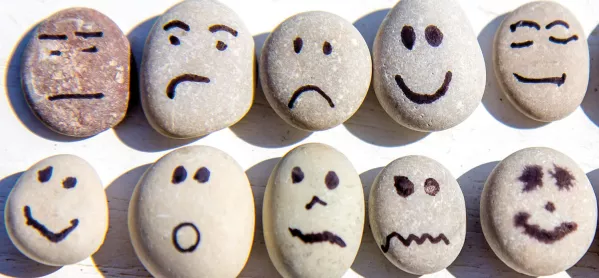- Home
- ‘Schools can’t improve pupils’ wellbeing alone’
‘Schools can’t improve pupils’ wellbeing alone’

Just 15 per cent of disadvantaged students in the UK feel satisfied with life, socially integrated at school and free from exam anxiety, according to an Organisation for Economic Cooperation and Development report released this week. This makes our young people one of the unhappiest groups that took part in the study. The research also shows that more advantaged young people score much better on these points and on academic attainment, highlighting the persistent gulf that continues to exist between young people born to different socioeconomic backgrounds.
The report highlights that teachers have a crucial role to play in fostering their students’ wellbeing and creating a positive learning environment for all. But we also know that, with increasing pressures, today’s teachers don’t always have the time and resources needed to develop students’ crucial life skills while also ensuring that they get the best possible academic results. Instead, we need to start looking at programmes and extracurricular activities that exist outside of today’s standard curriculum to try to ease their burden.
Attitudes in the education sector have already been shifting towards a mentality whereby schools aren’t judged simply on how well pupils do in tests and exams. Ofsted chief inspector Amanda Spielman recently announced that from next autumn inspectors will be moving away from looking at academic results and towards whether a much broader curriculum is being delivered in schools.
Although this has been generally well received by schools and teachers, it also means school leaders will need to start broadening their extracurricular offer to students, which, in turn, could increase staff workload. With so much pressure on teachers already, they must be supported in finding credible provision that ensures students are gaining both the strongest academic and personal education possible.
Extracurricular activities teach life skills
The OECD report also highlights that disadvantaged pupils do better when they are the minority in schools - meaning, to improve social mobility, poorer students should be taught alongside young people from different socioeconomic backgrounds. Facilitating this is something almost totally out of the control of many schools. Again, we need to look for additional solutions to improve social mobility other than just good teaching.
Programmes like the National Citizen Service (NCS) can offer a solution. It brings together hundreds of thousands of teenagers from different backgrounds for programmes that take place during school holidays. It can include outdoor team-building exercises for the participants to bond with those different from them, residentials for participants to learn “life skills” and community-based social action projects, which allow them to give something back to their community.
Research shows that those who participate in programmes like these feel more confident about their future life chances, with their eyes opened to new opportunities - many agreeing that they now have the skills and experience needed to get a job. Resilience is built, feelings of anxiety decrease and satisfaction in life rises.
At NCS, we work with all young people, and we’re undertaking focused initiatives with the Department for Education in their 12 “opportunity areas” to encourage maximum impact for those most in need. In the most disadvantaged areas (defined as the 20 per cent most deprived local authorities), one in five of all 16- to 17-year-olds takes part (compared with one in six overall) and participation figures are over the index nationally for young people on free school meals.
We know it makes a significant difference to the lives of the UK’s most disadvantaged young people. Evaluations have consistently shown a positive impact on the outcomes used to assess social mobility, while there is an almost 50 per cent increase in higher education participation for the most disadvantaged compared with those who don’t participate.
It’s extremely important to create a society that allows people from disadvantaged communities to be given more opportunities. But it’s not the job of teachers and schools alone. Instead, we need to work together as a society - towards creating an environment for young people that not only focuses on grades and tests but also on life skills and wellbeing.
Izzi Dorrian is the head of education engagement at the NCS Trust
Keep reading for just £1 per month
You've reached your limit of free articles this month. Subscribe for £1 per month for three months and get:
- Unlimited access to all Tes magazine content
- Exclusive subscriber-only stories
- Award-winning email newsletters